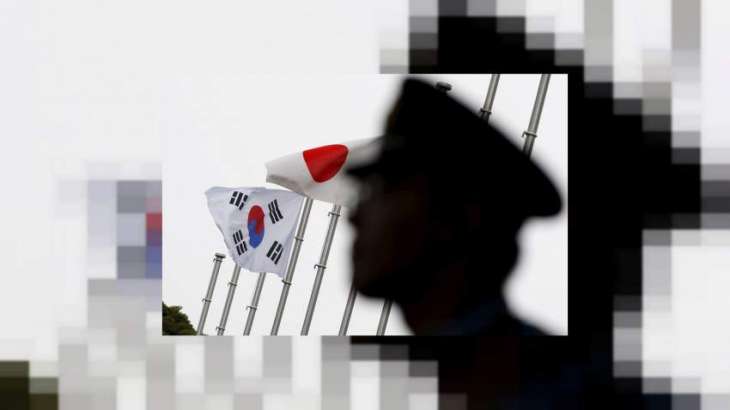South Korea and Japan will hold a working-level meeting on Friday as the bilateral military intelligence-sharing pact is set to expire next week, the South Korean Foreign Ministry said on Thursday
MOSCOW (Pakistan Point News / Sputnik - 14th November, 2019) South Korea and Japan will hold a working-level meeting on Friday as the bilateral military intelligence-sharing pact is set to expire next week, the South Korean Foreign Ministry said on Thursday.
In late August, Seoul announced the decision to not prolong the General Security of Military Information Agreement (GSOMIA), set to end on November 23. The move was a response to Japan's decision to stop treating Seoul as a trusted trade partner, implementing stricter customs procedures for a total of 1,194 items exported to South Korea. Washington has repeatedly called on its allies not to quit the military pact with Tokyo.
"Kim Jung-han, director-general for Asian and Pacific affairs at the South Korean Foreign Ministry, will have the South Korea-Japan director-level consultations with Shigeki Takizaki, director-general for the Asian and Oceanian Affairs Bureau of the Japanese Foreign Ministry, to discuss the issues of mutual interest in Tokyo in the morning of November 15 (Friday)," the ministry's press release read.
Meanwhile, a spokesperson for the South Korean Defense Ministry said earlier in the day that Seoul could mull overturning its ruling to terminate a military intelligence-sharing pact with Tokyo if the latter stops curbing exports to South Korea.
"Our government's position remains unchanged that if Japan withdraws unfair retaliatory measures and friendly relations between the two countries are restored, various measures can be reconsidered, including GSOMIA," Choi Hyun-soo told reporters, as quoted by the Yonhap news agency.
Relations between Japan and South Korea soured after the latter's top court ruled that a number of Japanese companies could be sued for their use of forced labor during World War II. Japan has protested the decision, claiming that the agreement the two countries signed in 1965 had resolved the issue of damages once and for all.




